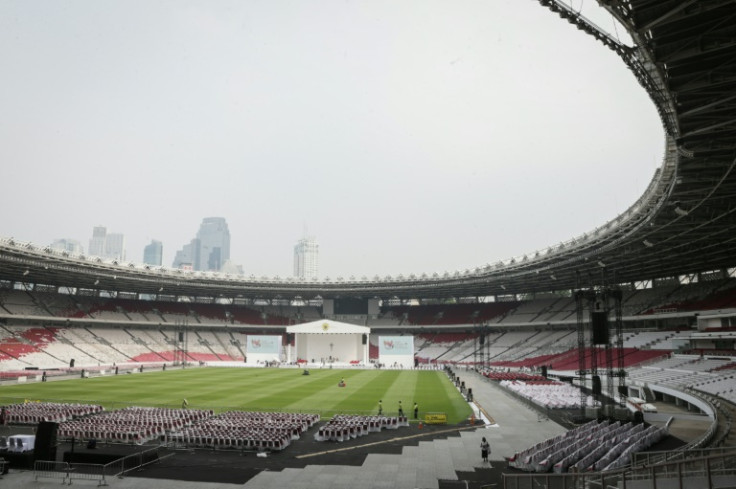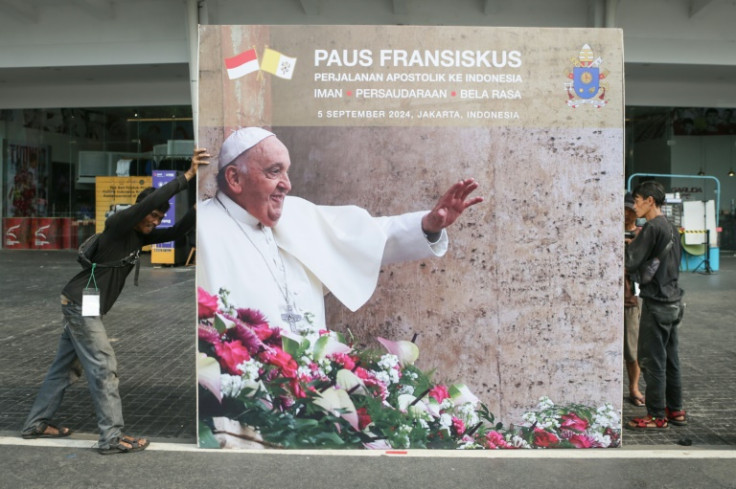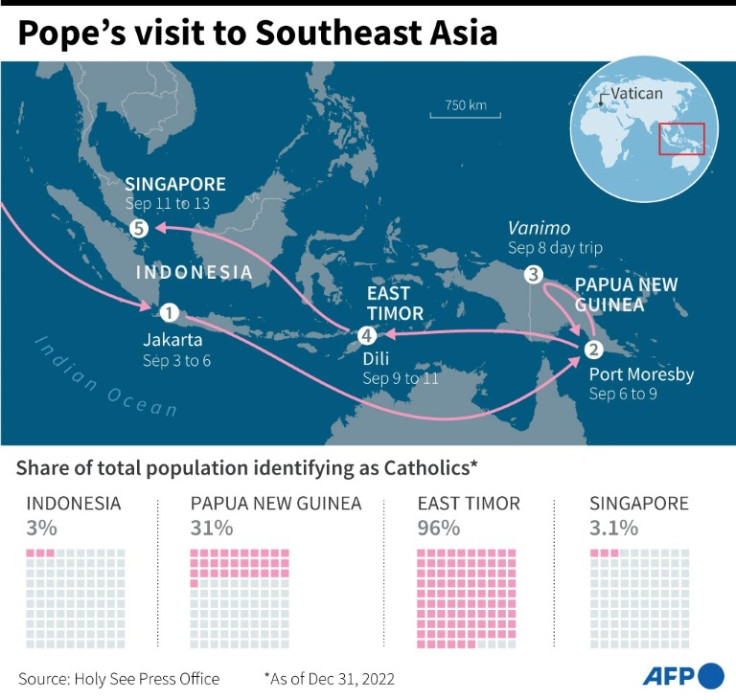
Pope Francis is set to stress religious harmony Wednesday as he meets leaders from other religions at Southeast Asia's biggest mosque and holds a mass for tens of thousands at a football stadium in Indonesia's capital.
The events are the final major set pieces of the pontiff's three-day visit to Indonesia, the most populous Muslim-majority nation in the world, that is kicking off a gruelling tour around the Asia-Pacific.
The pope on Wednesday called for religious unity and warned self-interest was driving global conflicts, laying the foundations for his Thursday morning meeting with leaders from Indonesia's six official religions at the Istiqlal Mosque.
"In order to foster a peaceful and fruitful harmony that ensures peace... the Church desires to strengthen interreligious dialogue," he said.
"A harmony in diversity is achieved when... each ethnic group and religious denomination acts in a spirit of fraternity."
He will also sign a joint declaration with the mosque's grand imam, touching on environmental protection and "dehumanisation" caused by conflicts, according to the Indonesian Bishops' Conference.
The mosque sits across from Jakarta's cathedral, linked by a "tunnel of friendship" as a symbol of religious fraternity.
Interfaith ties have been the central theme of Francis' trip.
He also used his platform to zero in Wednesday on the role all faiths can play on flashpoint security issues.
Interfaith dialogue is "indispensable to confront common challenges, including that of countering extremism and intolerance," he said.
He has made several visits to Muslim-majority countries, and on a 2019 visit to the United Arab Emirates signed a document on human brotherhood with the Grand Imam of Al-Azhar, Sunni Islam's prestigious seat of learning.
The biggest event of his Indonesia leg will be on Thursday afternoon when he will deliver a mass to nearly 80,000 people seated inside Indonesia's main football stadium, with tens of thousands more expected outside.
Many people have travelled from across Indonesia's vast island archipelago for the event.
Catholics represent fewer than three percent of the population of Indonesia -- about eight million people, compared with the 87 percent, or 242 million, who are Muslim.
But they are one of six officially recognised religions or denominations in the nominally secular nation, including Protestantism, Buddhism, Hinduism and Confucianism.
Some observers have pointed to growing discrimination against religious minorities in Indonesia, particularly Christians in some regions, and there are calls for the government to take action.
Amnesty International Indonesia called on the pope to urge Indonesia to respect all minority groups, saying it had recorded 123 cases of intolerance between January 2021 and July 2024.
"The Pope's visit plays a crucial role in encouraging Indonesia to end intolerance and discrimination against all minority groups," said Usman Hamid.
"Religious freedom is a right protected by Indonesia's constitution."
The trip to Indonesia is the third ever by a pope and the first since John Paul II in 1989.
The 87-year-old's fragile health is being tested on the trip. After Indonesia he will go to Papua New Guinea, East Timor and Singapore in what will be the longest tour of his papacy.
He had not travelled abroad since visiting Marseille in France in September last year.
Accompanying him to Indonesia are his personal doctor and two nurses, but that is standard procedure and he has appeared in good health so far.
On Wednesday he smiled and joked with spectators on his first full day of events after arriving from Rome, which included meeting Indonesian President Joko Widodo.
He has used a wheelchair during the trip, but stood with a cane during the Indonesian national anthem and while observing a parade at a presidential palace welcome ceremony.










